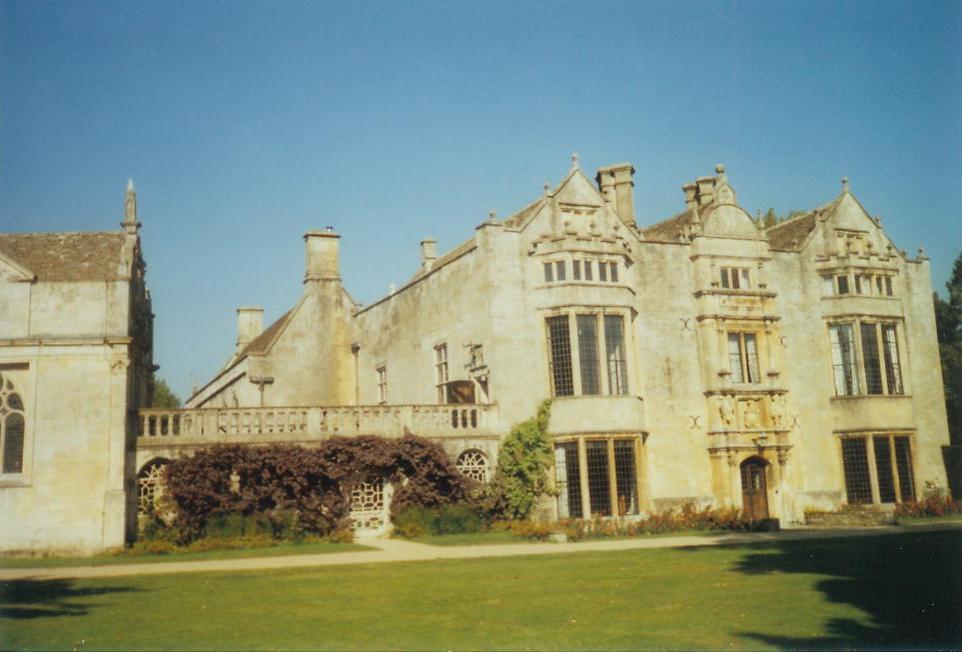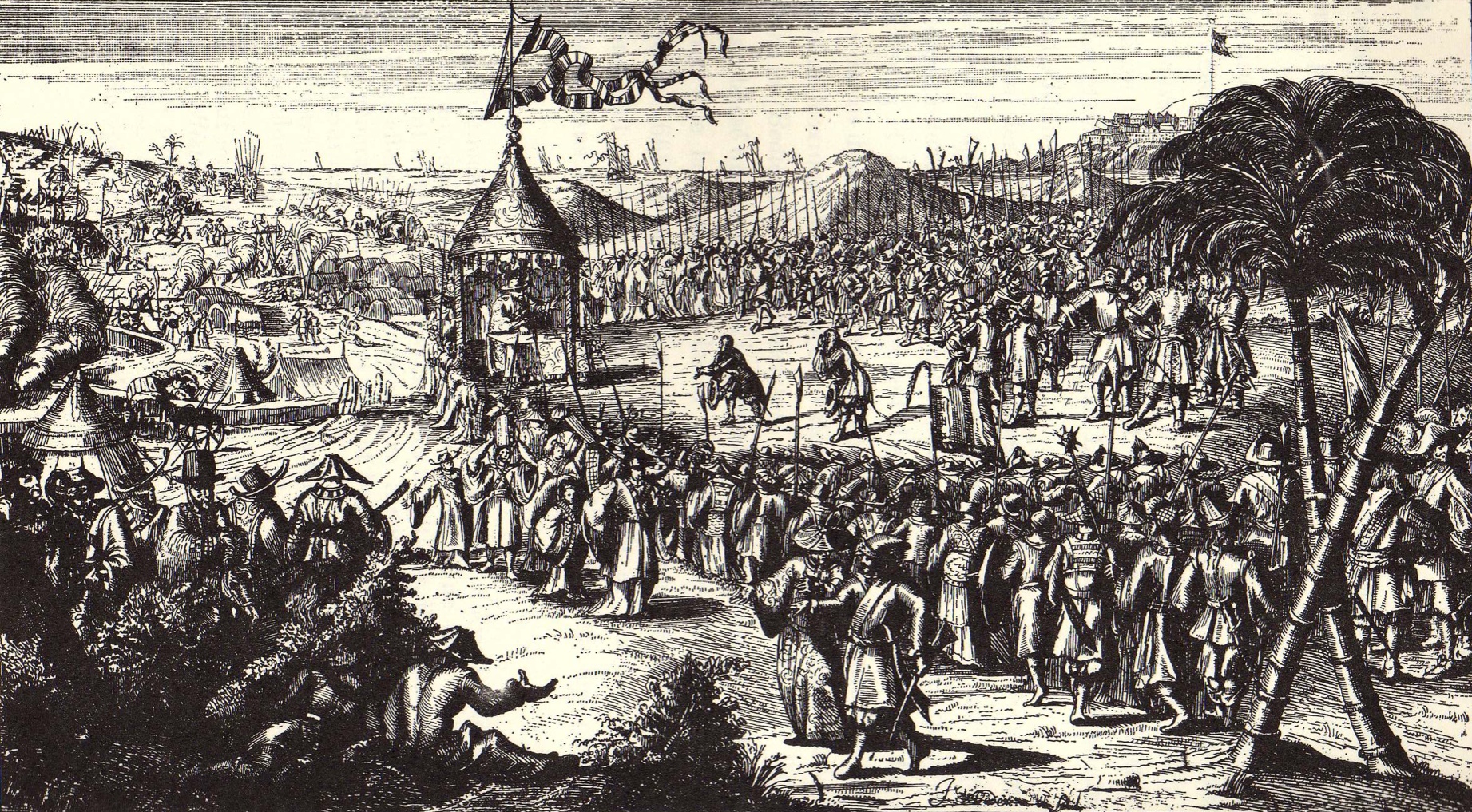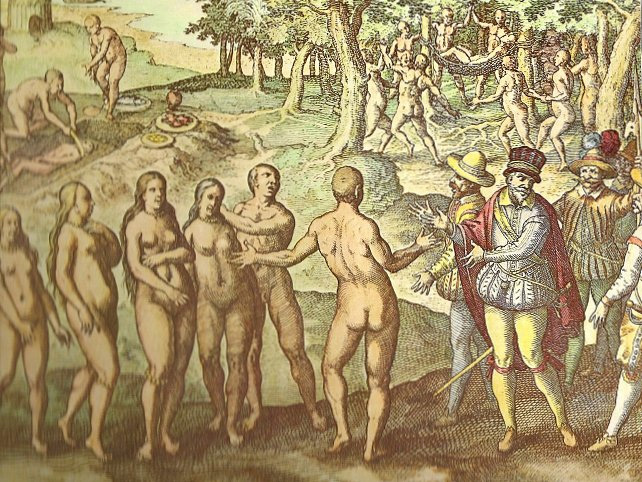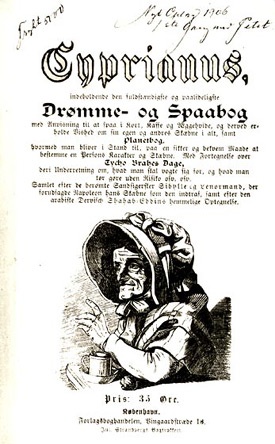|
Peter Heylyn
Peter Heylyn or Heylin (29 November 1599 – 8 May 1662) was an English ecclesiastic and author of many polemical, historical, political and theological tracts. He incorporated his political concepts into his geographical books ''Microcosmus'' in 1621 and ''Cosmographie'' (1657).Robert Mayhew, ''Geography is twinned with divinity''; Geographical Review, Vol 90, No 1, January 2000. Life Heylyn was born in Burford, Oxfordshire, the son of Henry Heylyn and Elizabeth Clampard. He entered Merchant Taylors' School in March 1612. At 14 he was sent to Hart Hall, Oxford, and matriculated from Magdalen College, Oxford, on 19 January 1616, aged 16. He was awarded BA on 17 October 1617 and was elected a Fellow in 1618. He lectured on historical geography at Magdalen. Heylyn was awarded MA on 1 July 1620. In 1620 he presented his lecture to Prince Charles, at Theobalds. He was incorporated at Cambridge University in 1621. In 1621 his lectures were published as ''Microcosmos: a Lit ... [...More Info...] [...Related Items...] OR: [Wikipedia] [Google] [Baidu] |
Burford
Burford () is a town on the River Windrush, in the Cotswold hills, in the West Oxfordshire district of Oxfordshire, England. It is often referred to as the 'gateway' to the Cotswolds. Burford is located west of Oxford and southeast of Cheltenham, about from the Gloucestershire boundary. The toponym derives from the Old English words ''burh'' meaning fortified town or hilltown and '' ford'', the crossing of a river. The 2011 Census recorded the population of Burford parish as 1,422. Economic and social history The town began in the middle Saxon period with the founding of a village near the site of the modern priory building. This settlement continued in use until just after the Norman Conquest of England when the new town of Burford was built. On the site of the old village a hospital was founded which remained open until the Dissolution of the Monasteries by King Henry VIII. The modern priory building was constructed some 40 years later, in around 1580. The town centre ... [...More Info...] [...Related Items...] OR: [Wikipedia] [Google] [Baidu] |
Abingdon-on-Thames
Abingdon-on-Thames ( ), commonly known as Abingdon, is a historic market town and civil parish on the River Thames in the Vale of the White Horse district of Oxfordshire, England. The Historic counties of England, historic county town of Berkshire, the area was occupied from the early to middle British Iron Age, Iron Age and the remains of a late Iron Age and Roman people, Roman oppidum, defensive enclosure lies below the town centre. Abingdon Abbey was founded around 676, giving its name to the emerging town. In the 13th and 14th centuries, Abingdon was an agricultural centre with an extensive trade in wool, alongside weaving and the manufacture of clothing. Charters for the holding of markets and fairs were granted by various monarchs, from Edward I of England, Edward I to George II of Great Britain, George II. The town survived the Dissolution of the Monasteries, dissolution of the abbey in 1538, and by the 18th and 19th centuries, with the building of Abingdon Lock in 1790 a ... [...More Info...] [...Related Items...] OR: [Wikipedia] [Google] [Baidu] |
Alumni Of Hart Hall, Oxford
Alumni (: alumnus () or alumna ()) are former students or graduates of a school, college, or university. The feminine plural alumnae is sometimes used for groups of women, and alums (: alum) or alumns (: alumn) as gender-neutral alternatives. The word comes from Latin, meaning nurslings, pupils or foster children, derived from "to nourish". The term is not synonymous with "graduates": people can be alumni without graduating, e.g. Burt Reynolds was an alumnus of Florida State University but did not graduate. The term is sometimes used to refer to former employees, former members of an organization, former contributors, or former inmates. Etymology The Latin noun means "foster son" or "pupil". It is derived from the Latin verb "to nourish". Separate, but from the same root, is the adjective "nourishing", found in the phrase ''alma mater'', a title for a person's home university. Usage in Roman law In Latin, is a legal term (Roman law) to describe a child placed in fosterag ... [...More Info...] [...Related Items...] OR: [Wikipedia] [Google] [Baidu] |
1662 Deaths
Events January–March * January 4 – Dziaddin Mukarram Shah I of Kedah, Dziaddin Mukarram Shah becomes the new Sultan of Kedah Sultanate, Kedah, an independent kingdom on the Malay Peninsula, upon the death of his father, Muhyiddin Mansur Shah of Kedah, Sultan Muhyiddin Mansur. * January 10 – At the age of 19, Louis I, Prince of Monaco, Louis Grimaldi becomes the new Prince of Monaco upon the death of his grandfather, Honoré II, Prince of Monaco, Honoré II. * January 14 – A Portuguese garrison invades Morocco and kidnaps 35 women and girls, then steals 400 head of cattle. The Moroccans counterattack and kill the garrison's commander, 12 knights and 38 other Portuguese soldiers before the surviving Portuguese are given sanctuary inside the English Tangier, English fortress at Tangier. A brief war ensues between England and Morocco. * January 22 – Former Chinese Emperor Zhu Youlang, Yongli, who had surrendered to General Wu Sangui in December, ... [...More Info...] [...Related Items...] OR: [Wikipedia] [Google] [Baidu] |
1599 Births
__NOTOC__ Events January–March * January 8 – The Jesuit educational plan, known as the ''Ratio Studiorum'', is issued. * January 22 – The Acoma Massacre begins in what is now northern New Mexico in the U.S., as Santa Fe de Nuevo Mexico viceroy Juan de Oñate leads 70 armed Spanish soldiers against the indigenous Keres people at Aak'u (the Acoma Pueblo) near what is now Albuquerque, New Mexico. In three days, 500 Acoma men and 300 women and children are killed by the Spanish. * February 20 – On Shrove Tuesday, the earliest known performance of William Shakespeare's play ''As You Like It'' is given, presented at Richmond Park for Queen Elizabeth. * February 21 **At Southwark, near London on the south bank of the River Thames, the land upon which the Globe Theatre will be built is leased by Nicholas Brend to a team of investors led by William Shakespeare, Thomas Pope, actors Cuthbert and Richard Burbage, and three others. **Lorenzo Sauli becomes the new Doge of ... [...More Info...] [...Related Items...] OR: [Wikipedia] [Google] [Baidu] |
Hamon L'Estrange
Hamon L'Estrange (1605–1660) was an English writer on history, theology and liturgy, of Calvinist views, loyal both to Charles I of England, Charles I and the Church of England. Along with Edward Stephens (d. 1706), he contributed to the seventeenth-century revival of interest in ancient liturgies; with John Cosin and Anthony Sparrow he began the genre of commentary on the ''Book of Common Prayer''. He has been confused at times with his father, son and grandson of the same name. Life L'Estrange was baptised at Sedgeford, Norfolk, 29 August 1605. He was the second son of Hamon le Strange, Sir Hamon L'Estrange (1583–1654) of Hunstanton Hall, Norfolk and his wife Alice L'Estrange, Alice Stubbe, daughter of Richard Stubbe, of Sedgeford, Norfolk. He was admitted to Gray's Inn 12 August 1617, but does not appear to have been called to the bar. His life was mainly devoted to theological study. He maintained a Calvinistic sentiment at a time when Laud and several of his circle were ... [...More Info...] [...Related Items...] OR: [Wikipedia] [Google] [Baidu] |
Amerigo Vespucci
Amerigo Vespucci ( , ; 9 March 1454 – 22 February 1512) was an Italians, Italian explorer and navigator from the Republic of Florence for whom "Naming of the Americas, America" is named. Vespucci participated in at least two voyages of the Age of Discovery between 1497 and 1504, first on behalf of Spain (14991500) and then for Portugal (15011502). In 1503 and 1505, two booklets were published under his name containing colourful descriptions of these explorations and other voyages. Both publications were extremely popular and widely read throughout much of Europe. Historians still dispute the authorship and veracity of these accounts, but they were instrumental in raising awareness of the discoveries and enhancing the reputation of Vespucci as an explorer and navigator. Vespucci claimed to have understood in 1501 that Brazil was part of a fourth continent unknown to Europeans, which he called the "New World" (Mundus Novus). The claim inspired cartographer Martin Waldseemüller ... [...More Info...] [...Related Items...] OR: [Wikipedia] [Google] [Baidu] |
Oxford English Dictionary
The ''Oxford English Dictionary'' (''OED'') is the principal historical dictionary of the English language, published by Oxford University Press (OUP), a University of Oxford publishing house. The dictionary, which published its first edition in 1884, traces the historical development of the English language, providing a comprehensive resource to scholars and academic researchers, and provides ongoing descriptions of English language usage in its variations around the world. In 1857, work first began on the dictionary, though the first edition was not published until 1884. It began to be published in unbound Serial (literature), fascicles as work continued on the project, under the name of ''A New English Dictionary on Historical Principles; Founded Mainly on the Materials Collected by The Philological Society''. In 1895, the title ''The Oxford English Dictionary'' was first used unofficially on the covers of the series, and in 1928 the full dictionary was republished in 10 b ... [...More Info...] [...Related Items...] OR: [Wikipedia] [Google] [Baidu] |
Cyprianus Anglicanus
''Cyprianus'' is a name given in Scandinavian traditions of folk magic to the "black book" ("''Svarteboken"''): a grimoire or manuscript collection of spells; and by extension to the magical tradition that these spells form a part of. There is no standard text called "Cyprianus"; it was a general label given to a collection of spells. Manuscripts called or referring to Cyprianus had a dark reputation; in some versions, one obtained the text by renouncing one's baptism and devoting oneself to Satan. The common people's opinion of the book was that it was a standard grimoire concerned with the summoning of demons and spirits. Ministers were often thought to have obtained it through their studies at university; it is not coincidence that ministers' wives often functioned as folk healers in rural communities. Like many such texts, it was said to be bound to its owner and hard to get rid of; it was claimed that these texts will not burn nor be destroyed by water, and attempting t ... [...More Info...] [...Related Items...] OR: [Wikipedia] [Google] [Baidu] |
William Laud
William Laud (; 7 October 1573 – 10 January 1645) was a bishop in the Church of England. Appointed Archbishop of Canterbury by Charles I of England, Charles I in 1633, Laud was a key advocate of Caroline era#Religion, Charles I's religious reforms; he was arrested by Parliament of England, Parliament in 1640 and executed towards the end of the First English Civil War in January 1645. Laud believed in Episcopal polity, episcopalianism, or rule by bishops. "Laudianism" was a reform movement that emphasised liturgical ceremony and clerical hierarchy, enforcing uniformity within the Church of England, as outlined by Charles. Its often Ritualism in the Church of England, highly ritualistic aspects prefigure what are now known as high church views. In theology, Laud was accused of Anglican Arminianism, Arminianism, favouring doctrines of the historic church prior to the Reformation and defending the continuity of the English Church with the primitive and medieval church, and opposi ... [...More Info...] [...Related Items...] OR: [Wikipedia] [Google] [Baidu] |
Puritans
The Puritans were English Protestants in the 16th and 17th centuries who sought to rid the Church of England of what they considered to be Roman Catholic practices, maintaining that the Church of England had not been fully reformed and should become more Protestant. Puritanism played a significant role in English and early American history, especially in the Protectorate in Great Britain, and the earlier settlement of New England. Puritans were dissatisfied with the limited extent of the English Reformation and with the Church of England's religious toleration of certain practices associated with the Catholic Church. They formed and identified with various religious groups advocating greater purity of worship and doctrine, as well as personal and corporate piety. Puritans adopted a covenant theology, and in that sense they were Calvinists (as were many of their earlier opponents). In church polity, Puritans were divided between supporters of episcopal, presbyterian, and ... [...More Info...] [...Related Items...] OR: [Wikipedia] [Google] [Baidu] |









